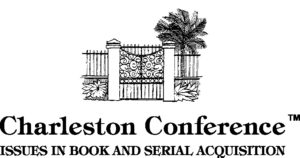
Earlier this month, I traveled to the Charleston Library Conference: Issues in Book and Serial Acquistion on behalf of Technica Editorial. The weeklong event ran from November 6 through November 10 and featured numerous receptions, a vendor showcase, poster session, and concurrent sessions on topics in library management and the publishing industry. The theme for this year’s meeting was “What’s Past Was Prologue.” Here is a recap of some of the discussions from the event.
The panel “Publication Ethics, Today’s Challenges: Navigating and Combating Questionable Practices” was an eye-opening session. The publishing industry has been rocked in recent years by new ethical issues ranging from fake authors and peer reviewers to predatory journals and fictitious conferences. Academic misconduct, which was once the work of lone wolf authors, is now a business model for companies. The panel argues that publishers and journal societies need multi-faceted responses to these growing problems. Publishers have made some inroads into stopping this growing deception. Many journal societies no longer accept suggested reviewers in order to cut down on fake peer review, and stricter policies are being created for adding and changing author lists particularly after acceptance in order to cut down on fake authors. However, journal professionals argue that publishers need to be cautious and impartial when responding to author issues, as many “ethical” issues are honest mistakes caused by author ignorance. Still, some red flags to watch out for as an editor include: an author’s request to remove a co-author, any plagiarism match of over 15 percent, and an author refusing to share data. These could be signs of possible ethical issues.
A second session called, “Scientific Societies and Associations: A Close Look into What They Do and Why It matters for Libraries,” addressed more direct collaborations between scientific societies and libraries in order to prepare early career scientists for their future in publishing. The speakers for the session discussed how incredibly important it is for research librarians to encourage students and researchers to read guidelines and listen to webinars to be up-to-date with best practices, particularly for journal submissions. Libraries have also been helping to develop peer review panels to normalize the review process and train scholars on what to catch when reviewing for publications. It is important that people who are interested in getting published learn the publication process, and academic libraries can help with this mentoring. At the same time, scholarly societies should understand and address issues that librarians are interested in: access, discoverability, and transparency.
The final session I attended, “Pirates or Robin Hoods? Copyright and the Public Good,” was focused on the growing issues in copyright management. Websites such Sci-Hub and ResearchGate are continuing to erode the line between open access and copyright infringement. The session examined whether copyright laws in their current form are ultimately a good thing for the public and whether copyright laws must change to reflect the technological evolution in publishing. Despite recent legal action against Sci-Hub and ReasearchGate by publishers and societies, there has been very little measurable change in copyright thus far. This reflects the fact that the world of scholarly publishing is about sharing and many see internet pirates posting paywall-blocked articles as “Robin Hood” like behavior. Yet, we must still be vigilant about piracy as it could ultimately deflate the publishing industry, thus reducing the quality of published work.



